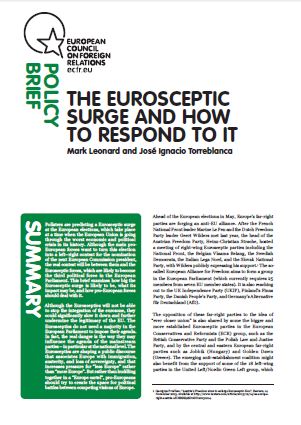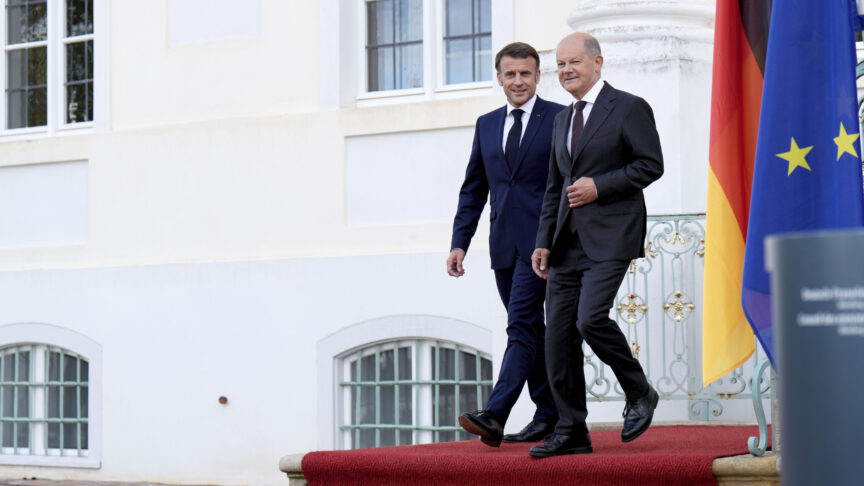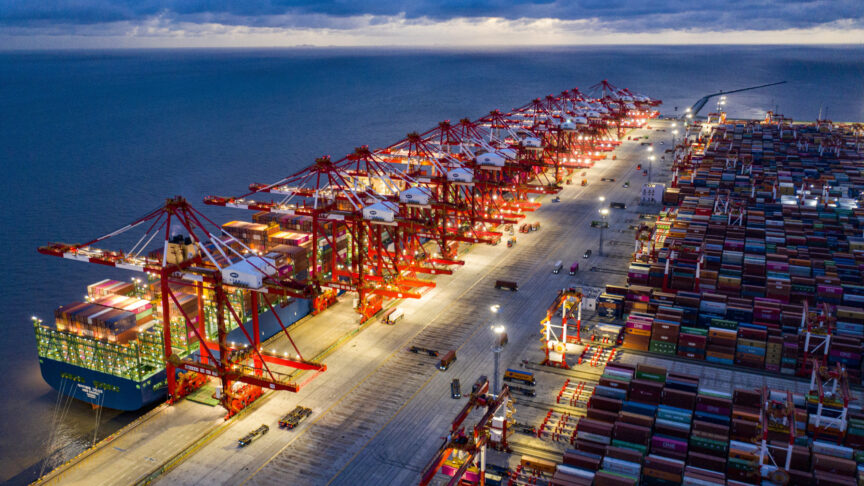The Eurosceptic surge and how to respond to it
Pro-Europeans should create space for battles between competing visions of Europe
After years of crisis, opinion polls across Europe forecast sweeping gains for Eurosceptic parties at the EU elections in May 2014. They are especially likely to make gains in three large countries: France, Italy, and the United Kingdom, become a key political force in Greece, Czech Republic and the Netherlands and get quite a push in Denmark, Austria, Lithuania, Hungary and Finland.
With a growing transnational power base in an increasingly powerful European Parliament, these parties may be able to slow down further eurozone integration and undermine the legitimacy of the European project. But the biggest impact of a Eurosceptic victory may be on mainstream politics. They may succeed in associating the EU with fears over immigration, and turn politics into a crude and unhelpful battle between “more” and “less” Europe.
Instead of panicking, the authors of a new ECFR policy brief – “The Eurosceptic surge and how to respond to it” – argue that pro-European politicians need to give people real choices and address real issues:
- Most of all, pro-Europeans must not turn things into a simple battle between pro- and anti- Europe, but must emphasise the importance of normal political ideas – for instance centre-left and centre-right policy responses to the challenges facing the EU and its member states, such as employment, migration, growth, and the rise of China.
- Pro-European parties who form a grand transnational coalition risk increasing the perception of an elite cartel that runs the EU to the detriment of many Europeans. This fits the Eurosceptic narrative of a dispute between elites and the people.
- Instead, pro-European parties should emphasise that acknowledged European problems like the euro’s institutional inadequacies and the EU’s democratic deficit require a constructive solution at the European level, rather than recourse to nationalism and xenophobia.
“The Eurosceptics could widen the divisions that have emerged in Europe, between North and South, creditors and debtors, euro-ins and euro-outs, at a time when Europe desperately needs decisive action to be taken to solve the institutional basis of the crisis.” José Ignacio Torreblanca
“The Eurosceptic surge could be more damaging than the emergence of the Tea Party in the US – it could lead to the strange spectacle of a “self-hating parliament” that ultimately wants to secure its own abolition.” Mark Leonard
The European Council on Foreign Relations does not take collective positions. ECFR publications only represent the views of their individual authors.



